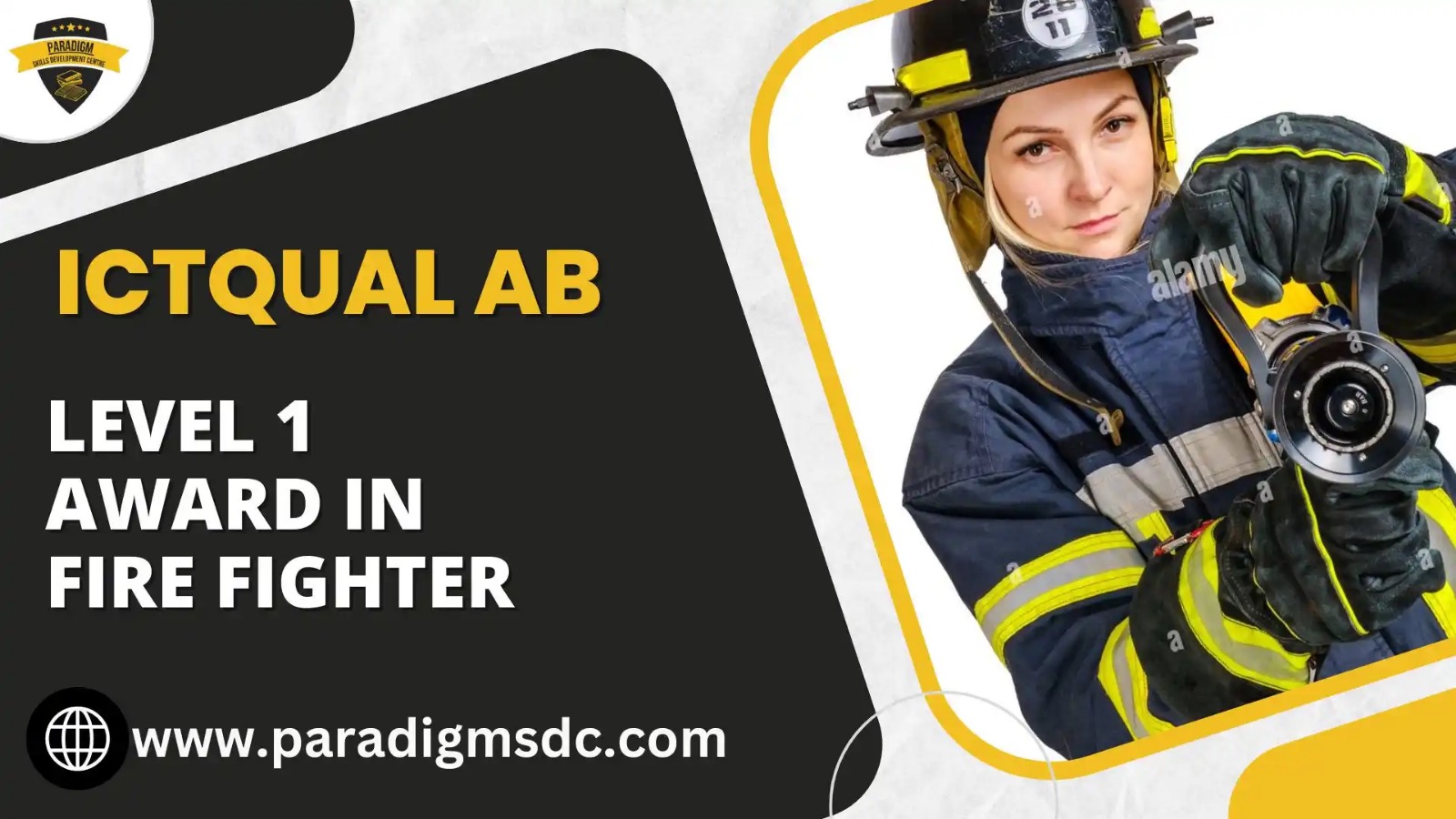Course Introduction
The ICTQual Level 1 Award in Fire Fighter is an introductory course designed to provide aspiring firefighters with the fundamental skills and knowledge required to begin a career in fire service. This course offers a blend of theoretical knowledge and practical training, preparing participants for the demanding and rewarding role of a firefighter.
Course Overview
The ICTQual Level 1 Award in Fire Fighter covers essential topics related to fire safety, emergency response, and firefighting techniques. The course includes both classroom instruction and hands-on training, ensuring that participants are well-prepared to handle real-life fire emergencies and contribute effectively to fire safety and prevention efforts.
Course Study Units
- Introduction to Firefighting
- Fire Behavior and Types
- Firefighting Equipment and Techniques
- Safety Protocols and Personal Protective Equipment (PPE)
- Emergency Response and Rescue Operations
- Legislative and Regulatory Requirements
Learning Outcomes
Upon completing the ICTQual Level 1 Award in Fire Fighter, participants will:
1. Introduction to Firefighting
- Understand the historical development and societal role of firefighters.
- Identify and describe the different types of fire services and their specific functions.
- Appreciate the significance of fire safety in protecting lives and property.
- Recognize the various career paths available within the firefighting profession.
2. Fire Behavior and Types
- Comprehend the chemical and physical principles of fire.
- Classify different types of fires based on their sources (Classes A, B, C, D, and K).
- Understand the behavior and spread of fires in different environments.
- Identify the stages of fire development and the factors that influence fire behavior.
3. Firefighting Equipment and Techniques
- Recognize various firefighting tools and equipment and their specific uses.
- Demonstrate proper handling and maintenance of firefighting gear.
- Apply basic firefighting techniques and tactics effectively in simulated scenarios.
- Understand the importance of equipment readiness and regular maintenance in firefighting operations.
4. Safety Protocols and Personal Protective Equipment (PPE)
- Understand and implement safety protocols and procedures in firefighting scenarios.
- Properly use and maintain personal protective equipment (PPE) to ensure safety.
- Ensure personal and team safety during firefighting operations by adhering to established safety protocols.
- Recognize the potential hazards associated with firefighting and take appropriate measures to mitigate risks.
5. Emergency Response and Rescue Operations
- Effectively assess and respond to fire emergencies using standard procedures.
- Conduct search and rescue operations using appropriate techniques and tools.
- Provide basic emergency medical care as needed during firefighting activities.
- Understand the principles of triage and the prioritization of rescue operations in emergency situations.
6. Legislative and Regulatory Requirements
- Understand the legislative and regulatory framework governing fire safety.
- Recognize the legal responsibilities of firefighters and fire services in ensuring compliance with safety regulations.
- Ensure that firefighting practices align with relevant safety standards and legal requirements.
- Maintain accurate records and documentation to demonstrate compliance with regulatory guidelines and support safety audits.
Course Benefits
- Foundational Knowledge: Gain essential knowledge and skills required for a career in firefighting.
- Practical Training: Engage in hands-on training to develop real-world firefighting abilities.
- Career Preparation: Build a strong foundation for further training and advancement in the fire service.
- Safety Awareness: Learn crucial health and safety protocols to protect yourself and others.
- First Aid Skills: Acquire basic first aid skills to provide immediate medical assistance during emergencies.
Who is this Course For?
This course is ideal for:
- Individuals aspiring to start a career in the fire service.
- Community volunteers interested in fire safety and emergency response.
- Safety officers and personnel seeking foundational knowledge in firefighting.
- Students considering a future in emergency services and public safety.
Future Progression
Upon completing the ICTQual Level 1 Award in Fire Fighter, participants can pursue various career and educational pathways, including:
- Advanced training in firefighting and emergency response.
- Specialized courses in areas such as fire investigation, hazardous materials, and rescue operations.
- Career opportunities in fire departments, emergency services, and safety organizations.
- Further education in public safety, emergency management, or fire science.
Investing in the ICTQual Level 1 Award in Fire Fighter is the first step towards a fulfilling and impactful career in the fire service. By acquiring fundamental skills and knowledge, graduates are well-equipped to protect communities, save lives, and contribute to public safety in meaningful ways.







